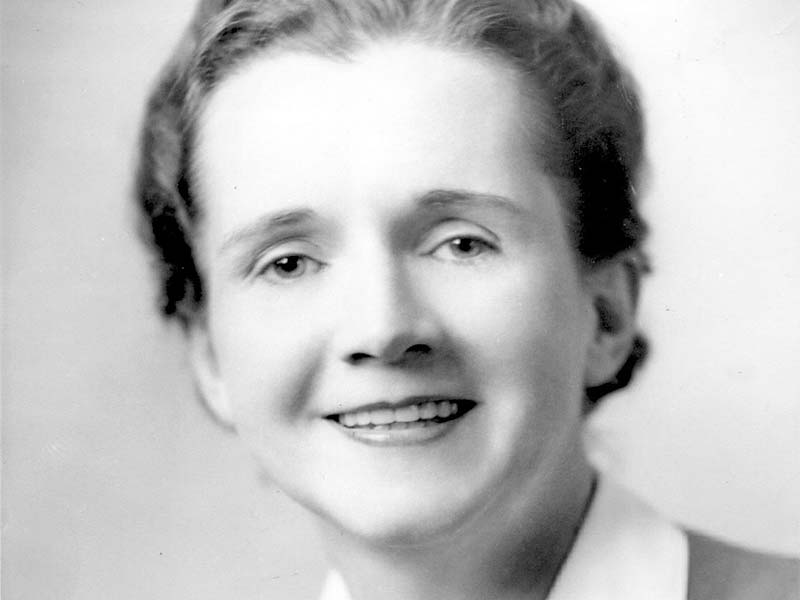Eagles Fly But Bees Are Falling on Carson Anniversary
A new pesticide dangers lurk, 50 years after Rachel Carson's death.

This page was published 11 years ago. Find the latest on Earthjustice’s work.
“A Who’s Who of pesticides is therefore of concern to us all. If we are going to live so intimately with these chemicals, eating and drinking them, taking them into the very marrow of our bones – we had better know something about their nature and their power.” –Rachel Carson, Silent Spring
There is a reason why our Springs still have bald eagles, screeching falcons and wave-skimming pelicans. The reason is Rachel Carson, who died 50 years ago this month—just two years after her book Silent Spring alerted the world to how pesticides like DDT had infiltrated and were poisoning the very building blocks of life.
Today, DDT is banned in the U.S. and many of the creatures it had nearly extinguished have rebounded, but the plague of pesticides Carson warned about continues to infiltrate our lands, our air, our water, and many of Earth’s creatures, among them ourselves. It’s a plague hard to fight and hard to protect ourselves against—in part because our regulatory system treats the chemicals as if they had rights: safe until proven guilty.
Safe? Tell that to farmworkers and families who live and work within the drift of pesticides so that they are forced to feel the chemicals upon their bodies, in their hair, in the breaths they take, and upon their eyes.
Not harmful? Observe the rapid demise of pollinating bees across this country. Long-lasting pesticides such as the neonicotinoids were developed to replace sometimes more odious compounds. But it’s hard to imagine something more odious than these neonics, which are sprayed on scores of fruits, vegetables and ornamentals, penetrating the plants’ vascular systems, making them poisonous to bees and others. Honeybees and bumblebees literally dropped from the sky where these compounds have been applied.
Innocent? Look in your own yard and others in your neighborhood. Chances are that those commercially grown plants, trees and bushes are treated with neonics and are releasing their lethal load on unsuspecting—but vitally important—insects like bees and butterflies.
A member of the neonics family—sulfoxaflor—is targeted by Earthjustice legal action. The EPA prematurely approved this product even though the agency concedes that sulfoxaflor is highly toxic to bees. This cavalier attitude infuriates beekeepers and bee organizations who have helplessly watched for years as massive bee die-offs—called colony collapse disorder—swept the country. On their behalf, we are challenging the EPA’s hasty and incomplete approval process.
But, while we are in court because of sulfoxaflor, we are happy to see the EPA finally proposing last month an updated—and stronger—standard for protecting farmworkers from pesticides. There are over 2 million farmworkers in our country producing the food we eat while facing exposure to more than 1 billion pounds of pesticides applied each year. Protecting them with safe working conditions is something we’ve pushed for years. While the standards are better than the sorely outdated standards from more than 20 years ago, Earthjustice, along with our partners, are working now to strengthen the protections even more and end the double standard that leaves farmworkers less protected than other workers.
In fact, protecting people and the environment from dangerous chemicals is something we’ve been at it for nearly 40 years—almost as long as Earthjustice has existed and barely a decade after Rachel Carson’s revolutionary writings ignited the modern environmental movement. Today, 50 years after her passing and just days before Earth Day, we pay homage to her legacy and rededicate ourselves to the important work needed to keep that legacy alive.